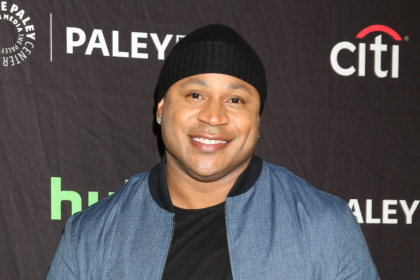It was 20 years ago today that one of the biggest debut albums in the history of hip-hop was released. Doggystyle, the seminal G-funk record that confirmed Calvin “Snoop Doggy Dogg” Broadus as hip-hop’s newest superstar circa 1993, was a smash that also made it clear that Death Row Records was at the forefront of the industry. Coming almost exactly one year after Dr. Dre‘s smash solo debut, The Chronic, Snoop’s first album arrived at a unique moment in rap history.
West Coast hip-hop artists had been around since the early 1980s, and had been making national waves at least as far back as 1988 when acts like N.W.A., Too $hort and Ice-T began gaining notice outside of California and the phrase “gangsta rap” entered the public consciousness. But hip-hop was still commercially dominated by New York City with artists like Public Enemy and LL Cool J and the artsy alt-rap of the Native Tongues crew still selling big numbers and getting more radio play.
But that all began to shift when Dre released The Chronic. With its emphasis on slow-rolling, melodic bass grooves and music videos that showcased the laid-back L.A. lifestyle (while still holding on to a gangsta aesthetic), The Chronic marked a moment where the national hip-hop conversation was focused on the West Coast. Ice Cube‘s most commercially successful singles were released in 1992 and 1993, with other artists like Cypress Hill achieving major crossover success. 2Pac also emerged as one of the most controversial artists in hip-hop at this time.
Snoop Doggy Dogg’s debut solo album arrived at the absolute perfect time. With his scene-stealing turn on The Chronic‘s biggest singles, the world already knew who he was. And Doggystyle capitalized on both his persona, and Dre’s distinctively laid-back grooves. The result was an immaculately produced album where the rapper and the production feel intertwined, a collection of songs so infectious that they can best be described as “gangsta” party records. It’s commercial success would weigh heavily on how the East Coast would shift musically over the next year–specifically the musical approach that Sean Combs’ Bad Boy Records would take was heavily indebted to the sound of Doggystyle. On Ready To Die, the debut album from the Notorious B.I.G., Combs melded hardcore East Coast “street hop” with a more melodic, accessible sound that was an obvious nod to what Death Row had done with Snoop’s album a year earlier.
Snoop himself would become the most talked-about rapper in the world over the next 12 months. His lyrics and persona would be the subject of intense debate, a notion that seems almost quaint today. In 2013, Snoop has morphed into hip-hop elder statesman and pop culture fixture. He’s as beloved by grandmas as he is revered by stoners. But 20 years ago, he was public enemy #1 for moral watchdogs and politicians looking to rid the youth of the scourge of gangsta rap; which had become mainstream in 1993.
His image as hip-hop’s biggest outlaw didn’t last, but the music on Doggystyle sounds as fresh as ever. Long after the controversy, it’s still a record worth talking about.















